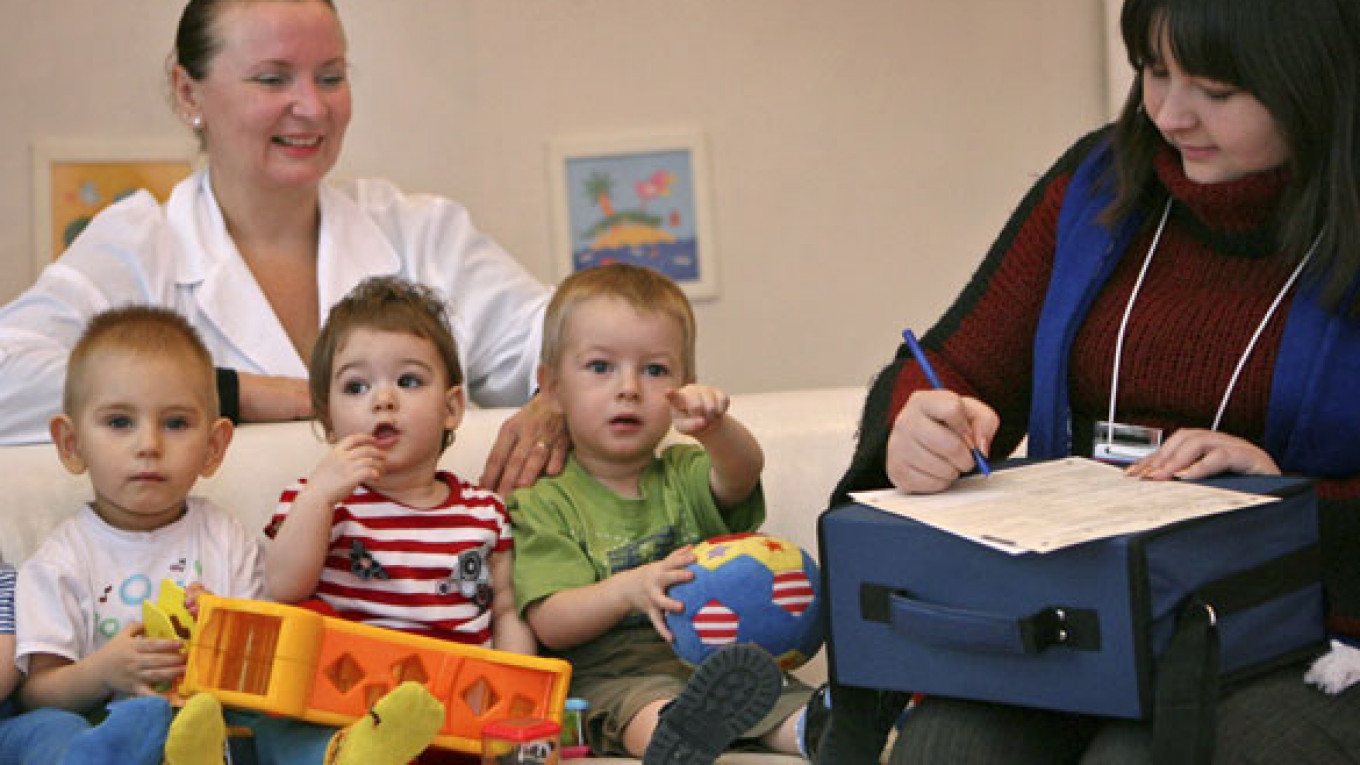A mayor threatened to blacklist wealthy census dodgers and several census takers spoke of fraud as the first national population count in eight years wrapped up Monday.
But demographers said they eagerly anticipated the results, the first of which are to be released by the State Statistics Service in April.
Chelyabinsk Mayor Sergei Davydov said city authorities would treat dodgers "the same way” they had treated the census.
“A number of our residents refused to take part in the census,” Davydov said at a City Hall meeting, Interfax reported. "As a rule, these people have higher education, a high income, a certain status in the city and live in luxury places. It's very surprising."
“They also ignore elections,” he added.
He did not elaborate on how the people would be blacklisted and what consequences they would face.
Davydov's deputy, Yevgeny Shinin, said census takers had to obtain data about the dodgers from utility companies.
State Statistics Service chief Alexander Surinov said the census had gone well overall, with no mass refusals to take part. He added, however, that an unspecified number of people had refused to answer questions “for religious reasons or some private discontent,” Interfax reported.
Participating in the census was not mandatory.
The census, estimated to have cost the state 17 billion rubles ($562 million), started Oct. 14 and was to end Monday but will be extended in some far-flung areas and the Krasnodar region, which was hit by floods last week.
Several census takers — many of whom are students — have reported in their blogs about how they entered personal data, sometimes for dozens of people, without actually interviewing anyone.
“Each of us was given several lists and told to copy them,” a blogger who identified himself as Konstantin Muravyov wrote on his LiveJournal account. "Looking through them, the students realized one by one that they were databases. They contained addresses, telephones, names, birth dates, places of birth."
He could not say where the databases had came from.
Meanwhile, demographers welcomed the census despite the shortcomings.
“There are simply no other sources to get information like the occupation of the population, people's concentration in the regions, the state of their households, etc.,” said Sergei Zakharov, deputy head of the Demography Institute at the Higher School of Economics.
He said by telephone that the problem of falsified census data most likely affected big cities such as Moscow and St. Petersburg and called an attempt to boycott the census a more serious problem.
The Other Russia opposition group had called for the boycott as a protest against the authorities. The extent of the boycott's success is unclear.
A total of 71 percent of Russians understand the goal of the census, according to a survey by the state-run VTsIOM pollster released Thursday. Twenty-five percent of respondents said they would nevertheless withhold some personal information from census takers.
The last census, in 2002, put Russia's population at 145.2 million, a drop of 1.8 million from the 1989 census. Estimates by the State Statistics Service released earlier this month said the downward trend has continued to an estimated 141.9 million.
A Message from The Moscow Times:
Dear readers,
We are facing unprecedented challenges. Russia's Prosecutor General's Office has designated The Moscow Times as an "undesirable" organization, criminalizing our work and putting our staff at risk of prosecution. This follows our earlier unjust labeling as a "foreign agent."
These actions are direct attempts to silence independent journalism in Russia. The authorities claim our work "discredits the decisions of the Russian leadership." We see things differently: we strive to provide accurate, unbiased reporting on Russia.
We, the journalists of The Moscow Times, refuse to be silenced. But to continue our work, we need your help.
Your support, no matter how small, makes a world of difference. If you can, please support us monthly starting from just $2. It's quick to set up, and every contribution makes a significant impact.
By supporting The Moscow Times, you're defending open, independent journalism in the face of repression. Thank you for standing with us.
Remind me later.






